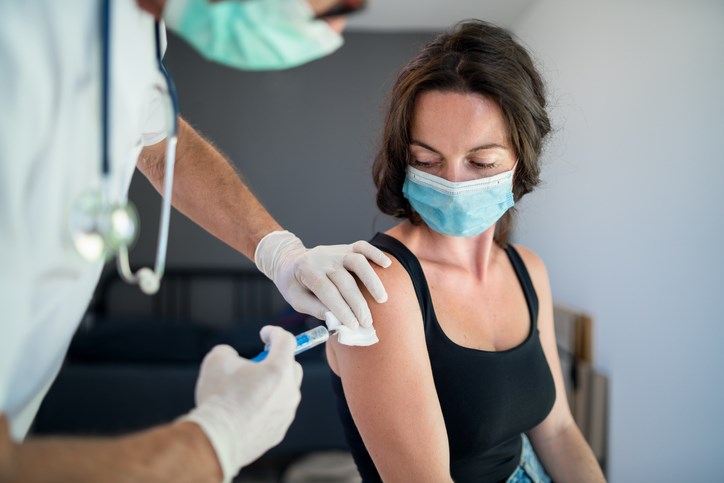B.C.’s top doctor says the province is considering reserving the one-dose Johnson & Johnson COVID-19 vaccine for residents who might prove “challenging” to find when trying to administer two doses.
The first 300,000 doses of the vaccine are due to arrive in Canada this week, with B.C.’s allocation expected to make its way to the province in early May.
The other three vaccines approved for use in Canada — Pfizer Inc., Moderna Inc. and AstraZeneca plc — all require two doses for maximum efficacy.
But the J&J vaccine only requires one dose, and has been tapped in U.S. jurisdictions for use in homeless populations or people living in rural areas.
The vaccine is considered fridge-stable, making it easier to transport than the Pfizer or Moderna vaccines.
“So that gives us some flexibility in targeting certain populations, particularly people who may be challenging to find for those two doses,” B.C. provincial health officer Dr. Bonnie Henry said during a Monday briefing.
It’s unclear how many J&J doses will be allocated to B.C. following the first shipment to Canada.
Earlier Monday, Health Canada said it would update the product labelling on the J&J vaccine to inform Canadians about the signs and symptoms of possible side effects.
This comes following a very small number of cases reported in the U.S. of blood clots linked to those who have received a dose.
Last week, Canada’s National Advisory Committee on Immunization (NACI) updated its own recommendations for the AstraZeneca vaccine following a similarly rare number of blood-clot cases.
NACI is now recommending the use of AstraZeneca for the use of those 30 years and older.
B.C. initially paused the use of the vaccine for those under 55 but last week the province resumed administering doses to those 40 and older.
NACI’s advice serves only as a recommendation — not a mandate — to provincial health officials who ultimately decide how the vaccine is administered.
B.C. had originally planned to allocate its AstraZeneca doses to essential workers before pausing the use of the vaccine for those under 55.
Health officials rejigged the essential workers program, tapping the other supply of vaccines to target first responders, school staff and childcare staff.
With 276,000 doses per week of the Pfizer vaccine due to arrive in B.C. beginning in May, Henry said those essential workers should be immunized “in the next few weeks.”
Meanwhile, B.C. has administered first doses to 1,546,337 people to date, or about 36% of the eligible population (4.3 million British Columbians are presently eligible to be vaccinated while the province still considers immunization plans for those under 18).
That’s up from 1,453,403 people who have received at least one dose when data was last reported on Friday.
@reporton



